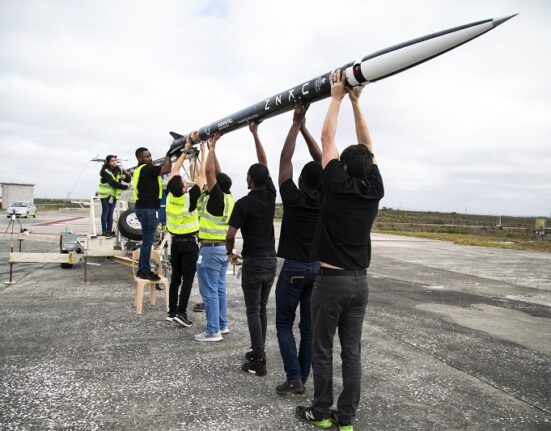Modern manufacturing is a dynamic realm that constantly evolves, presenting new challenges and opportunities for businesses worldwide. The landscape of Industry 5.0 heralds a significant shift in how we perceive and engage with technology within the manufacturing sector.
In the past, Industry 4.0 emphasized a technology-centric approach, pushing boundaries with automation and digitalization. However, Industry 5.0 takes a more nuanced stance by advocating for human-technology collaboration. This paradigm emphasizes the synergy between advanced technologies like AI, robotics, and IIoT with human skills and ingenuity.
Johan du Toit, Strategic Sales Executive for SYSPRO Africa, succinctly captures this evolution:
“The focus now is not on technology replacing humans but on assisting them through human-machine collaboration (cobots), freeing up human capacity to do what technology cannot while boosting efficiency.”
Smart factories are at the forefront of this transformation, integrating cutting-edge technologies to streamline operations and enhance overall efficiency. Automation, AI-driven systems, robotics, and IIoT play pivotal roles in shaping these modern manufacturing hubs.
Embracing Advanced Technologies
Adopting advanced technologies is essential for manufacturers seeking to optimize processes and maintain competitiveness in today’s market. Six key trends are driving this new era of manufacturing:
1. Balancing sustainability and innovation.
2. Adopting a human-centric approach.
3. Human-robot collaboration.
4. Shifting towards sustainable manufacturing.
5. Embracing a circular economy.
6. Adopting a value-centric approach.
A recent survey underscores the growing importance of embracing these trends: over 60% of manufacturers recognize the significance of IIoT adoption while 32% leverage automation and robotics to enhance precision, quality, and efficiency.
Despite these compelling statistics,
it’s important to note that many manufacturers are still in the early stages of technological integration.
While progress is evident across various regions globally, Africa presents an intriguing case study in its manufacturing evolution.
Africa’s Manufacturing Landscape Transformation
Traditionally known for low-value activities like textile production and food processing, African countries such as South Africa, Morocco,
Egypt,
Ethiopia,
and Kenya are making substantial investments in diverse industries including automotive manufacturing,
machine production,
aerospace components,
ICT,
and pharmaceuticals.
This strategic diversification signifies Africa’s commitment to industrial advancement beyond Industry 4
0 toward embracing Industry 5
0 principles
The adoption rate varies across different technological fronts with automation robots taking precedence among African manufacturers due immediate benefits such as enhanced precision quality control waste reduction seamless system integration
AI presents significant future potential despite slower adoption rates offering capabilities improving data analytics maintenance optimization downtime reduction positioning disruptive force industry
IIoT valued enabling real-time data-driven decision-making operational efficiency adopted by considerable percentage respondents showing faster uptake
Challenges Hindering Technology Adoption
While there is immense potential in leveraging advanced technologies some hurdles impede widespread implementation High upfront costs pose significant barriers companies considering investing futuristic solutions Mid-sized budget-constrained firms particularly vulnerable financial burden Internal resistance change also hampers progress skepticism surrounding impact efficiency value addition creates further roadblocks CIOs CTOs struggle secure buy-in navigate transition current future operations Manufacturers cite lack technical expertise managing new tech difficulties integrating existing infrastructure cautious disruptive actions could jeopardize daily operations despite long-term benefits anticipated overcoming challenges requires strong leadership commitment strategic planning robust support teams place ensure successful technology implementation Future Outlook Embracing Transformative Change As complex manufacturers continue journey towards adopting sophisticated technologies pivotal embrace adaptability vision proactive strategies remain competitive rapidly changing environment Industries poised benefit significantly from implementing smart solutions like AI robotics IIoT African continent uniquely positioned capitalize emerging trends foster sustainable innovative production practices Path forward demands collaborative effort stakeholders executives workforce navigating challenges ensuring seamless integration new tech evolving global standards critical thrive interconnected world where adaptation key success Johan du Toit insightful observation encapsulates essence transformative era industry when states embrace innovations maximize potentials In conclusion advancements reshaping face manufacturing ushering impactful changes can elevate businesses position lead charge sustainable growth thriving marketplace









Leave feedback about this